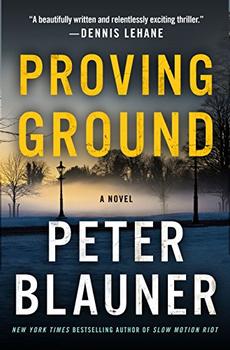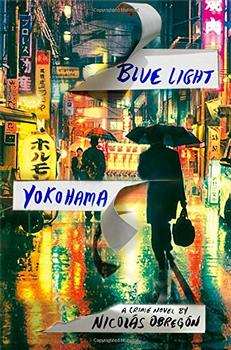Summary | Excerpt | Reviews | Beyond the book | Read-Alikes | Genres & Themes | Author Bio

Intense! That's the word. Winslow's The Force rips through its four hundred pages with the breath-taking, slam-you-in-your seat intensity of a cop ride-along turned guns-blazing shoot-out.
At an NYPD precinct along the edge of Harlem, the Manhattan North Special Task Force has been established to "hold the line" – at least that's how the cops see it – against the gang-bangers, dope slingers, and a whole list of other mopes, miscreants, and skels. Sgt. Denny Malone leads the task force, and he's backed up by his "brothers" – loyalty is the first among virtues – Phil Russo, Bill Montague, and Billy O'Neill, at least until Billy O dies during a drug raid.
That's the narrative: One raid. Another. A scheme to extort bribes. A double-cross. Interference from the old-time mob. Cut-throat politics, adding favors to the bank. All this accomplished while Denny and crew, staying out of the way of the Internal Affairs Bureau Civilian Complaint Review Board, manipulate what's left of the Cimino crime family, and stay out of sight of community activist ministers who flock to television lights like well-dressed moths. Here's the key point: Denny's dirty. His entire crew is on the take or can be paid to do a dirty job off-the-clock. It's de rigueur for the time, place, and circumstance, but it's never allowed to interfere with righteous police work or hurt a civilian. Denny and crew will accept a multi-hundred dollar comped meal, but they'll never stiff the hard-working server on the tip. That makes Denny the classic anti-hero, the flawed avenging angel, complete with a soon-to-be-former wife, Sheila, safely ensconced with son and daughter in the Irish/Italian, police/firefighter refuge of Staten Island. Sheila doesn't question the envelopes of cash that arrive regularly, and she knows they will keep coming if Denny goes down, but Sheila's none too happy about Claudette, warm and kind, intelligent and funny, the beautiful, sometimes-drug-addicted nurse Denny loves beyond reason.
Winslow knows cop life, especially the modus operandi of a cop willing to do bad while doing good, and willing to accept a little extra on the side for it. He has it all down – the repartee, the attitude, the cynical-sardonic-realist world view, and the gallows humor. The atmosphere resonates so deeply that the street-wise fractured grammar and spot-on syntax, which Winslow even incorporates into the expository segments, seem to be coming from an unauthorized wiretap. The narrative reeks with violence and vulgarity, yes, but the plot stands entirely believable. Denny manipulates drug dealers vying for turf, and then double-crosses and backstabs to block the Domo – Dominican Trinitarios gang – from taking over Harlem entirely. There's also the matter of gun-running, the "pipeline" from southern states with less restrictive control laws, into the city. The NYPD brass and the politicians want that river of violence dammed. Denny's willing, but criminals will die, and the brass shouldn't ask questions. Doesn't PR demand something positive to knock repeated Times or Post anti-police headlines and exposé stories off the front pages in the wake of highly publicized police shootings?
Technically, the novel's perfect in function. The pace runs at pursuit speed. Conflict is in-the-news real. Descriptions are artistic, from "the sweet, fetid richness" of New York City, streets, cafes, and apartment buildings; to characters, with Russo in pointed Italian shoes, Montague ever-present in a trilby, and Denny, dressed in all black hiding a Sig-Sauer, Beretta, and knife-in-a-boot.
Police procedural fans will eat this one up. Winslow's The Force has the gritty, from-the-streets reality of L.A. Confidential or The French Connection.
![]() This review was originally published in The BookBrowse Review in July 2017, and has been updated for the
March 2018 edition.
Click here to go to this issue.
This review was originally published in The BookBrowse Review in July 2017, and has been updated for the
March 2018 edition.
Click here to go to this issue.

If you liked The Force, try these:

by Peter Blauner
Published 2018
A sweeping crime novel, an intricate story about the quest for redemption, and a vibrant portrait of contemporary New York City, all told in Blauner's singular voice.

by Nicolas Obregon
Published 2017
Haunted by his own past, his inability to sleep, and a song, 'Blue Light Yokohama,' Iwata is at the center of a compelling, brilliantly moody, layered novel sure to be one of the most talked about debuts in 2017.
Your guide toexceptional books
BookBrowse seeks out and recommends the best in contemporary fiction and nonfiction—books that not only engage and entertain but also deepen our understanding of ourselves and the world around us.